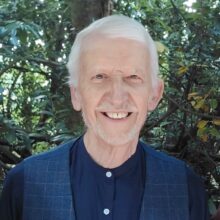In the spiritual, mindfulness, religious, Buddhist circles, we use the word ‘practice’ with frequency. Practice provides a genuine sense of development, of moving forward, while a fading of practice can give the sense of being stuck or slipping back into old patterns.
Practises maximise attention on the world of mind-body, mindfulness, meditation and well-being – that means conventional or relative truth of our perceptions.
Some practitioners adhere strictly to a specific practice, teaching and teacher. This can bring about a repetition of the same sensations, pleasurable and painful, due to the cycles within the specific practice. A specific practice can lead to a confined view or even become a militant orthodoxy.
A person may refer to their meditation practice, their yoga practice or describe themselves as a practising Buddhist or a practising Roman Catholic.
Others adopt a varied exploration to open the mind but may feel frustrated at not being able to co-ordinate different approaches, traditional and contemporary. It is not even necessary for the practising self to co-ordinate spirituality, various religious forms, mind-body approaches and more. Unification of diversity has little merit.
Practice requires wise attention to change our experience in major or subtle ways. Practice serves as a key theme in the arena of conventional truth.
Ultimate truth confirms a liberating truth, an awakening truth. Views differ from truth since views belong to the healthy, unhealthy or neither. Truth reveals discovery not tied to such human perceptions.
The power of trust matters. Am I willing to drop the notion of practice, narrow or broad, and trust that I will not slide back into old ways? Can such trust serve as an open doorway to ultimate truth?
We might consider neither encouraging practice, nor endorsing practice, despite its countless personal and social benefits. Practice remains confined to priorities of past, present and future. Practice functions as a preparation for seeing and knowing truth that liberates.
We are familiar with taking up views, remaining neutral with views or holding onto views. We might call these views relative or even absolute.
Can we discover truth not bound to perception, nor views, not bound to mystery, not bound to self, in any way at all?
This question lies at the heart of the deepest exploration.

